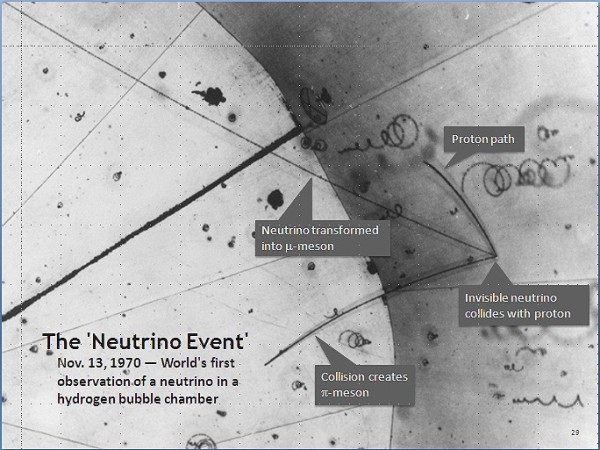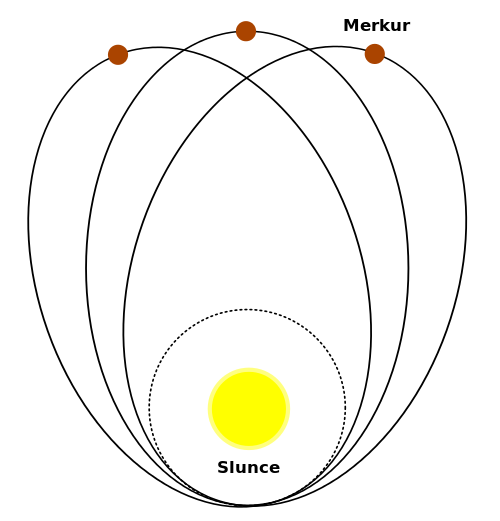If you've ever heard someone dismiss evolution, the Big Bang or climate change as "just a theory" and wanted to pull your hair out, you're not alone. In science, after all, theories are the most powerful ideas we have to explain the mechanism behind the most intricate observable phenomena in the Universe.
But it's where our theories fail, or at the fringes, where observations-or-experiments might disagree with the best theoretical predictions, that progress is made. This tantalizing border between the known-and-understood and the next undiscovered frontier are something we only cross by challenging our most cherished assumptions.
 The first detection of a neutrino. Charged particles show as trails in a bubble chamber.
The first detection of a neutrino. Charged particles show as trails in a bubble chamber.Credit: Argonne National Laboratory.
Come find out how far we've come and where we're looking next, courtesy of Brian Koberlein!


Really fascinating article. I've thoroughly enjoyed reading the guest articles here, it's great to see the scope of the blog expanding!
I once read a book about scientific thinking (I forget the details). One of the items was the use of ad-hoc explanations in science. To boil it down, ad-hoc moves are used a lot in science. Uranus moved faster than it should for 20 years, then at the expected speed for the next 20, then slower than expected for the next 20. This would appear to contradict the law of gravity. Then it was suggested that another large and hitherto undiscovered planet was exerting a gravitational pull on Uranus, and so it proved.
The article said that in order for an ad-hoc to be acceptable scientifically, it had to make predictions that were both accurate and surprising. By "surprising", the predictions had to be very unlikely to be true otherwise. The ad-hoc that led to the discovery of Neptune fulfils both criteria.
Dear Mr. Koberlein,
I have perused some of your posts, and writings... You are honestly better educated than I, and in league way over my head. But, and there is often a "but"... I would guess everyone has wondered about gravitation. I know I have... and possibly a wee bit more than average... so I am curious... Have you honestly ever really read a translation of Newton's Mathematical Principles of Natural Philosophy? And if you did... do you remember reading his disclaimer in Definition VIII, and again in Book I, The Motion of Bodies, Section XI, another disclaimer... both relating that: attraction is only used mathematical purposes, and for laymen, like me to understand... etc. He also wrote in a letter to a friend, to the effect that he was insulting anyone of high philosophical stature who would fall for the concept of attraction.
Ever since I was a boy I have heard of Newton's attraction... which I originally believed and most of the world believes still; since science has been writing for years of Newton's gravitational attraction without explaining he didn't really believe in it... only as a descriptive word for his mathematics.
I think that "Conjecture" is a better term here than "Assumption". Excellent in any case. _Greg